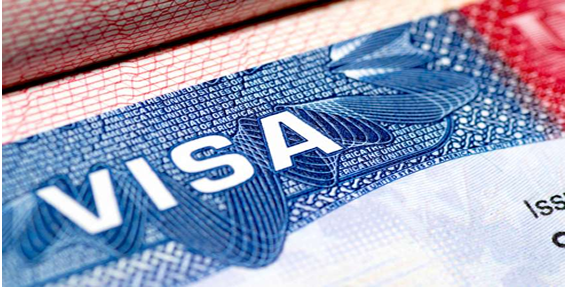For intimidating voters through threats and physical violence, manipulation of election results and any other activities that run contrary to democratic tenets during the recent general elections, some Nigerians have been slammed with visa restrictions by the United States of America, USA’ government.

This was made known on Monday by the Secretary of State, Anthony Blinken, in a statement posted on the website of the US government.
“Today, I am announcing that we have taken steps to impose visa restrictions on specific individuals in Nigeria for undermining the democratic process during Nigeria’s 2023 elections cycle.
“The United States is committed to supporting and advancing democracy in Nigeria and around the world,” he said.
Blinken, however, clarified that the visa restrictions “are specific to certain individuals and are not directed at the Nigerian people or the government of Nigeria as a whole.”
According to him, “Under Section 212(a)(3)C) of the Immigration and Nationality Act, these individuals will be subject to restrictions on visas to the United States under a policy covering those believed to be responsible for, or complicit in, undermining democracy.
“These individuals have been involved in the intimidation of voters through threats and physical violence, the manipulation of vote results, and other activity that undermines Nigeria’s democratic process.”
The US government further said that the visa restrictions reflected the continued commitment of the United States to support Nigeria’s aspirations to strengthen democracy and the rule of law.
While Blinken did not disclose the names of those on the visa ban list, such people if they apply for American visas, could be refused or if they already have valid visas, could be denied entry to the US.
The European Union, through the European Union Election Observation Mission, had also raised concern over the conduct of some persons and institutions during the polls.
In a statement by the Chief Observer, Barry Andrews, two days after the March 18 governorship and State House of Assembly polls, said Nigerians hungered for democracy and were ready to be involved in the country’s democracy, but that the appetite was lost due to failures by the political elite and the Independent National Electoral Commission, INEC.
Andrews said then: “Throughout the mission, we saw that Nigerians have a great appetite for democracy and are keen to engage in various civic activities.
“However, in many parts of the country, their expectations were not met. Many were disappointed and we witnessed voter apathy that is in part, a clear consequence of failures by political elites and, unfortunately, also by INEC.
“Public confidence and trust in INEC were severely damaged on 25 February due to lack of transparency and operational failures in the conduct of the federal level polls.”
Recall that the presidential and National Assembly elections were held on February 25, in which the candidate of the All Progressives Congress, APC, Asiwaju Bola Tinubu, was declared the president-elect, while the governorship and State House of Assembly elections followed on March 18.
The presidential candidates of the Peoples Democratic Party, Alhaji Atiku Abubakar and of the Labour Party, Mr Peter Obi, are currently in court challenging the election of Tinubu.
Tinubu is scheduled for inauguration on May 29 when the tenure of the incumbent, President Muhammadu Buhari, lapses.